We present to you an interview with Cristina Souza about her missionary experience in the Central African Republic.
(The interview is in Portuguese).
We present to you an interview with Cristina Souza about her missionary experience in the Central African Republic.
(The interview is in Portuguese).
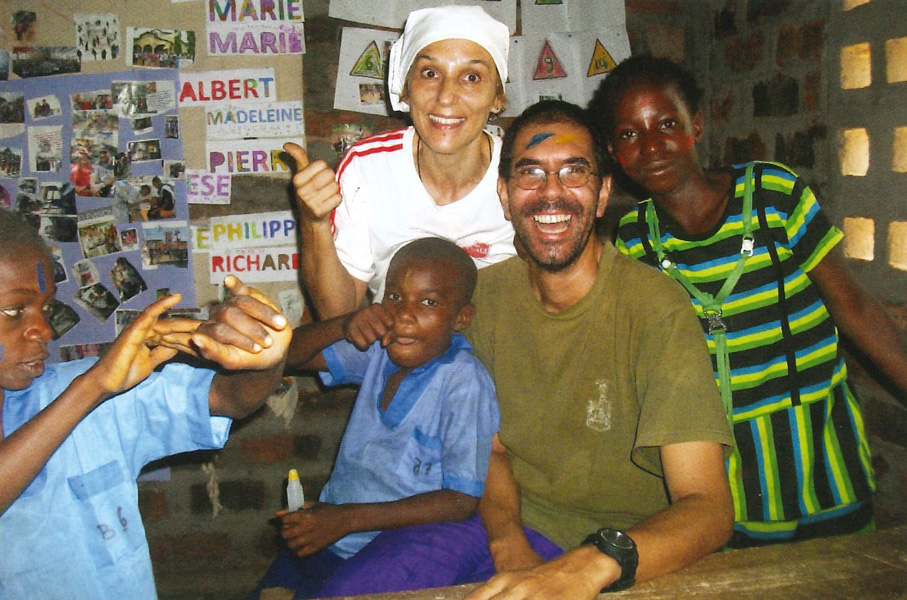
He is no longer “the same person who left” in 2017, Simone Parimbelli, 38 years old, Comboni Lay Missionary of the Diocese of Bergamo, who returned in September 2020 from Mongoumba in Central African Republic. Because, as he says with light in his eyes, “the mission opens the heart and the horizon and being outgoing changes you: from the conception of the missionary style to the relationship with time and space, with oneself and with God”. It happens when you are “in close contact with the sufferings and joys of the other” and live for three and a half years in the heart of the tropical forest, in the diocese of Mbaiki, in Mongoumba, where the Comboni Fathers have been working with the AKA pygmies for more than 30 years.
“It seems absurd, but these people are not recognized by other ethnic groups and have no access to education or health care; enslaved by the Bantu masters and without a birth certificate, they are ghosts in the flesh,” says Simone, denouncing a country that, despite many riches, lives in a condition of colonialism and misery.
“Being next to them, you become a door to knock on”, continues Simone who, as a layman, has sometimes “managed to enter into the concrete lives of people much more than priests, divided between the administration of the parish and the Eucharistic celebrations over a vast territory”. When he arrived in Mongoumba, he proposed several activities of animation, transforming for example the school of Ndobo, close to the pygmy camps, in an oratory, like the one of his parish of Osio Sopra, where growing up, at a certain point, he asked himself “what is the use of my faith?”.
From the question about vocation to the answer to a call, the step is, so to speak, short: it’s 7,500 kilometers along with everything else. But “when you have perhaps intuited what you can be in the world and for the world, you have to prove it”.
So, the diocese of Bergamo, Bishop Francesco Beschi, the Missionary Center and the international movement of the Comboni Lay Missionaries give him “the possibility and the grace to live this experience: 1,300 days of fragility and brotherhood” in a young Church “that knows how to generate children in faith and where joy prevails”.
Sent and welcomed: in a continuous cycle that, in the future, perhaps, will push him elsewhere, where the Holy Spirit blows, which, in Sango, the language of the Central African Republic, is called Yingo-Gbya.
(By Loredana Brigante, POPOLI e MISSIONE magazine. February 2021)
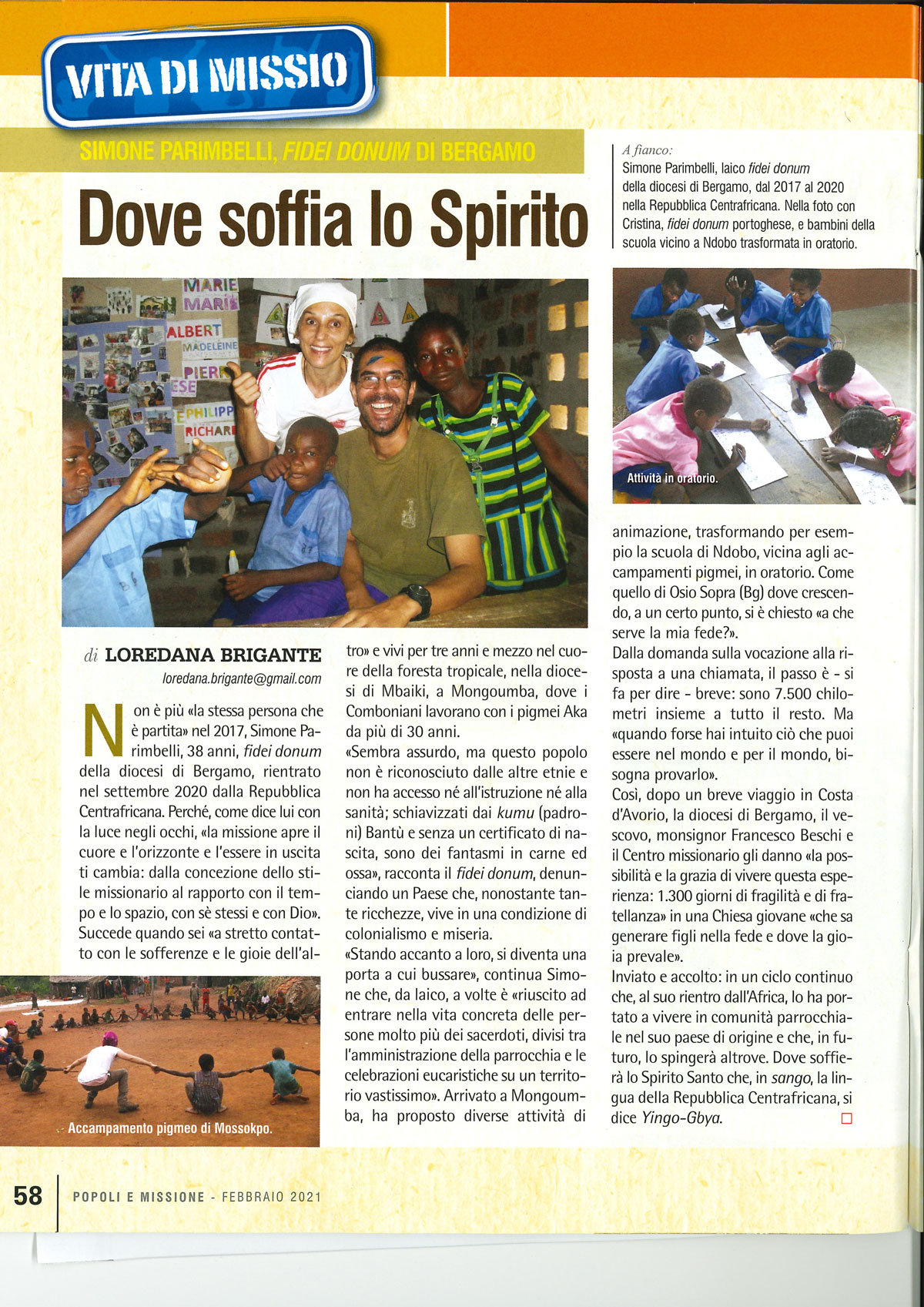
Sharing God’s love with others, receiving and giving, have determined our missionary vocation (Vicenta Llorca, Comboni Missionary Sister in Ethiopia for more than 40 years and Pedro Nascimento, Comboni Lay Missionary, two years in Ethiopia). As he did with Abraham, also to us, through prayer and personal discernment, God said: “Leave your country and go to the land that I will show you” (Gn 12:1). Our destination was Ethiopia, a country full of sunshine and hospitality. Ethiopia is a beautiful country, rich in history and culture, full of traditions and many peoples, with great linguistic diversity.
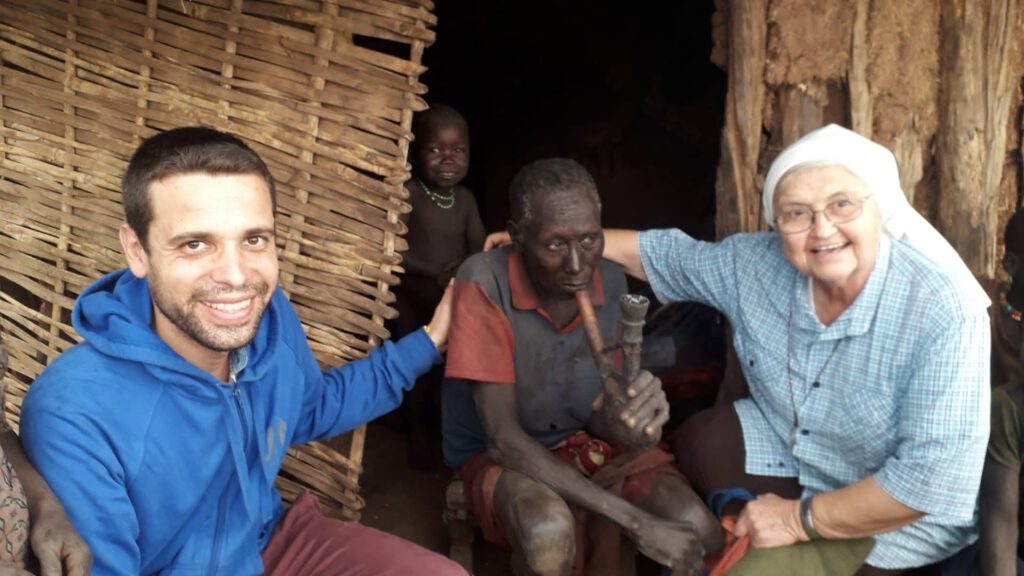
Benishangul-Gumuz is part of one of the regions of Ethiopia and one of the tribes present here is the Gumuz, a people of strong character, ready to fight to defend themselves in many ways. Our missionary work is especially among the Gumuz.
Our first impression was very good, as we always wanted to share our life with such a simple people. The community of the Comboni Sisters, located in Mandura, offers education, health care and catechetical pastoral care. The community of Comboni Lay Missionaries (David Aguilera and Pedro Nascimento) lives with the Comboni religious in Guilguel Beles, ten kilometers from Mandura, and tries to help both communities in the areas of education and catechetical ministry, as well as in the care of some of the sick.
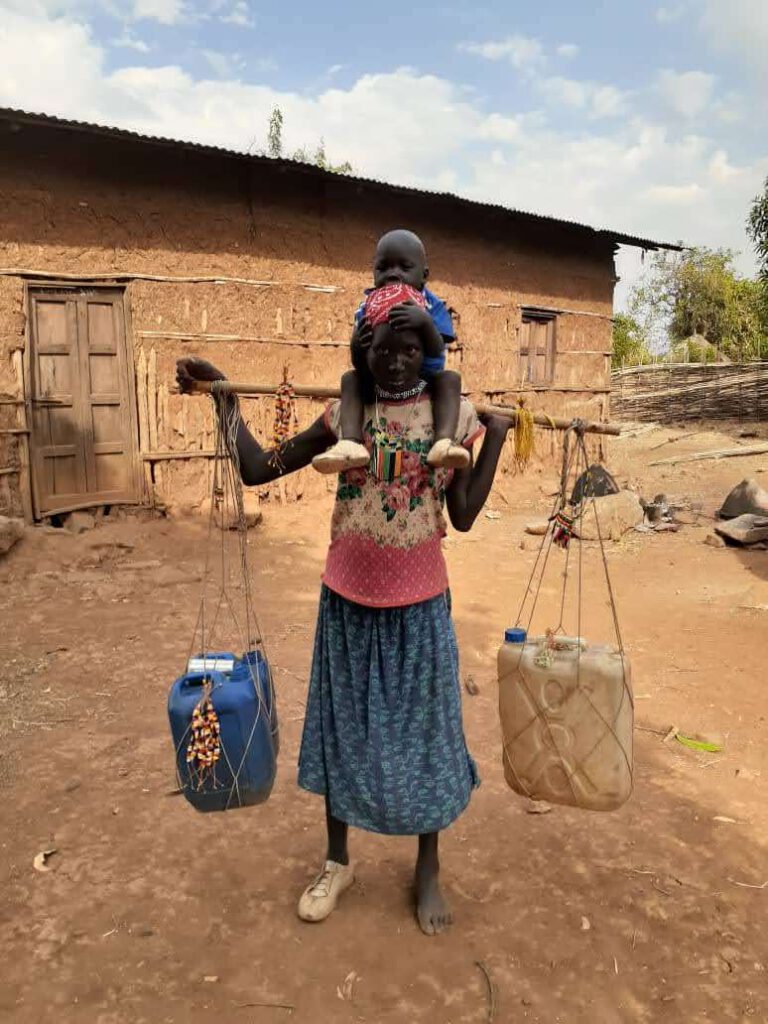
Vicenta and Pedro work in pastoral and social service, since the person is complete with the development of the soul and body. One of the activities we carry out together is the accompaniment of the catechesis of women in their spiritual, human and material development. We know that women have an important role in the transformation of society and here they need to be aware of this. Gumuz women work very hard and are often left behind in opportunities such as education, where educational attainment is not a priority, especially for women and girls. Above all, they have to work in the fields, collect firewood for cooking, carry water from the spring or river, carry heavy sacks of cereals (the fruit of their work in the fields), take care of their children, cook…. The life of the Gumuz woman is difficult and full of sacrifices and hard work.
We meet every week with a group of women who have chosen a name for the group: “Peace Builders”, a name due to the war situation that we have been living for more than two years in our area. In this group we share the Word of God, pray for peace and have coffee together with the economic collaboration of all, and we become close in our experiences of pain and suffering, strengthen our friendship, share dreams and aspirations for the future. These meetings give us the possibility to get to know each other and to be closer to each other. It is our desire, according to our possibilities, to develop activities that can help women in the economic part, since they have an important role in the maintenance of the family.
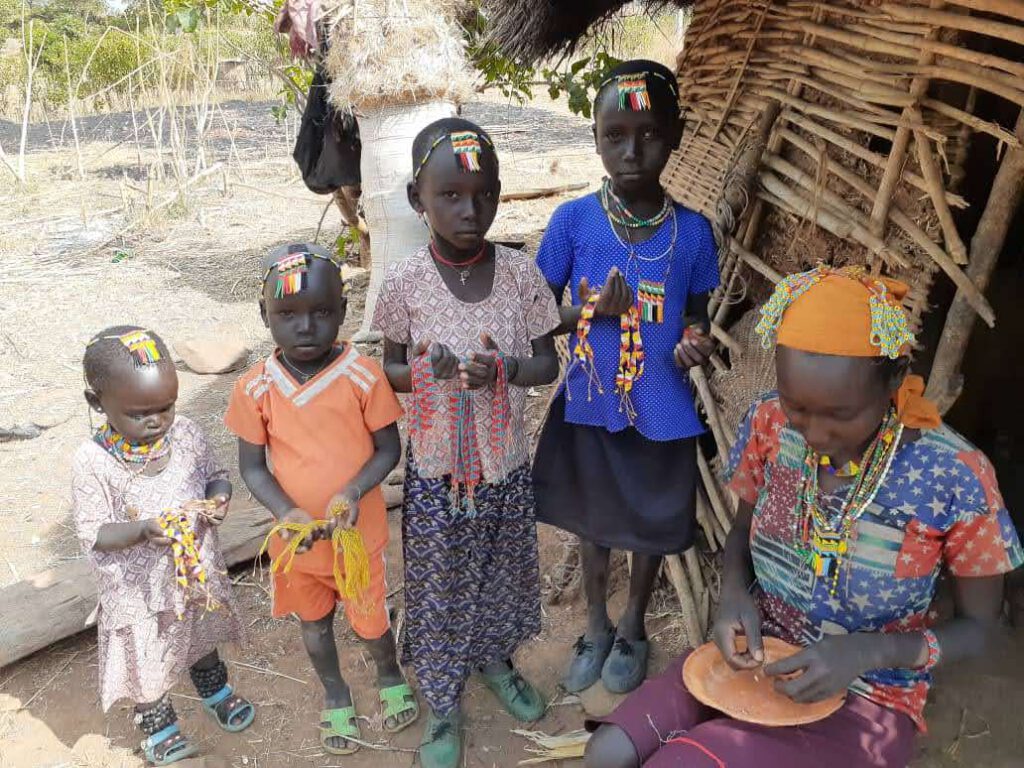
All this is very beautiful and attractive, but human life is made of happy moments and painful moments, days of light and days of darkness.
Due to ethnic clashes, especially over land ownership, social stability has worsened, many have been killed, villages have been burned, some crops have been stolen by opportunists, many innocent people have been imprisoned without knowing the reasons, schools and medical posts have been closed due to insecurity, for fear of students being attacked by rebels and teachers and nurses attacked and kidnapped, as most of them belong to another ethnic group. Unfortunately, this has been our reality for the past two years, with times of peace and times of conflict and insecurity. However, whether we live or die, we belong to the Lord (Rom 14:8) and He is always with us and accompanies us.
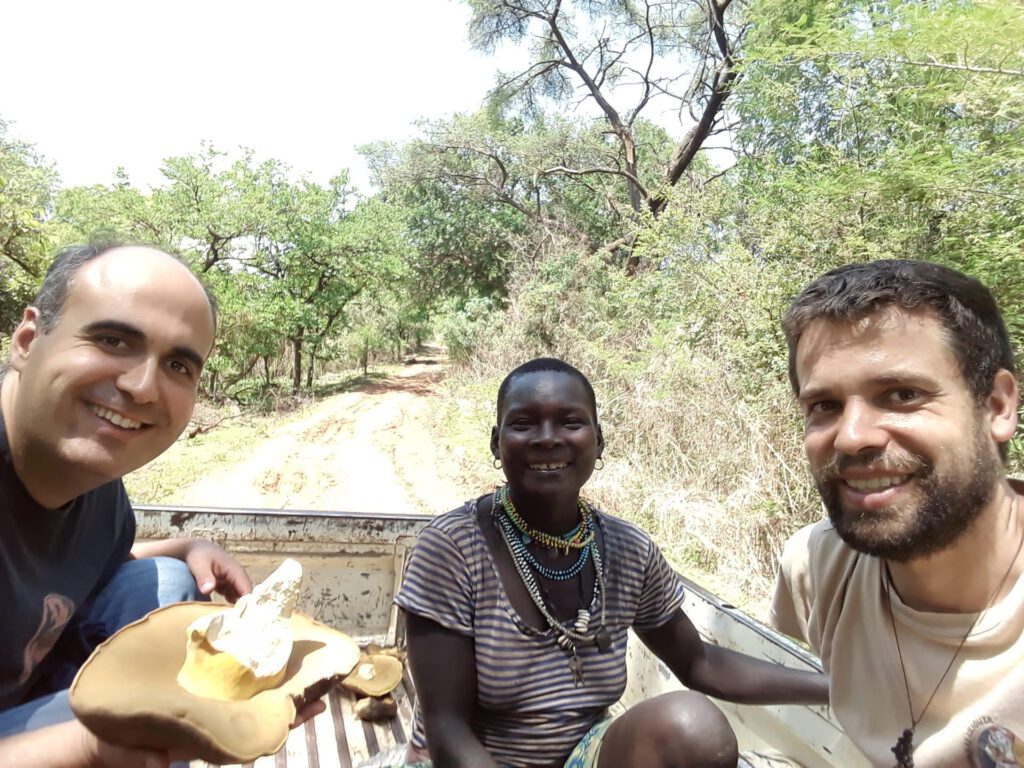
In the Sisters’ mission, some women asked for protection for few weeks, staying there to sleep. The situation worsened and they decided to escape to the forest, where they were able to hide. When the situation calmed down, little by little, the families returned to their huts. As we have already said, this situation has been repeated for two years and together we have experienced pain, insecurity, but also God’s protection. The works of God are born and grow at the foot of the Cross, as St. Daniel Comboni used to say.
None of this was foreseen when, full of illusions, we came to this mission, but we decided to make common cause with this people, to share the good and the bad moments, we decided to stay here and abandon ourselves in God’s hands. We have lived through many difficult moments and our presence here, in the midst of difficulties, is intended to be a testimony of fidelity to God manifested in fidelity to the people with whom we share our lives. It was Jesus who told us: “Behold, I am with you always, to the close of the age” (Mt 28:20).
In the midst of pain, of seeing the suffering of those who escape, of those who mourn for their loved ones, either because they have died or because they are deprived of their freedom, all this has become a time of grace that helps us to strengthen our faith and fidelity to a people who live in times of suffering. Making the pain of others my own shows us how important they are to us, how much we love them. St. Daniel Comboni taught us: I make common cause with you and the happiest day of my life will be the one when I give my life for you.
Right now peace talks are taking place between the government and rebel groups, schools and medical posts (some) are beginning to open. We are hopeful for times of peace, happiness and prosperity.
Pray for us and for the people of Ethiopia, because we cannot lose hope; pray that we will find support to develop economic activities with women and help families in need; pray for peace and fraternal communion.
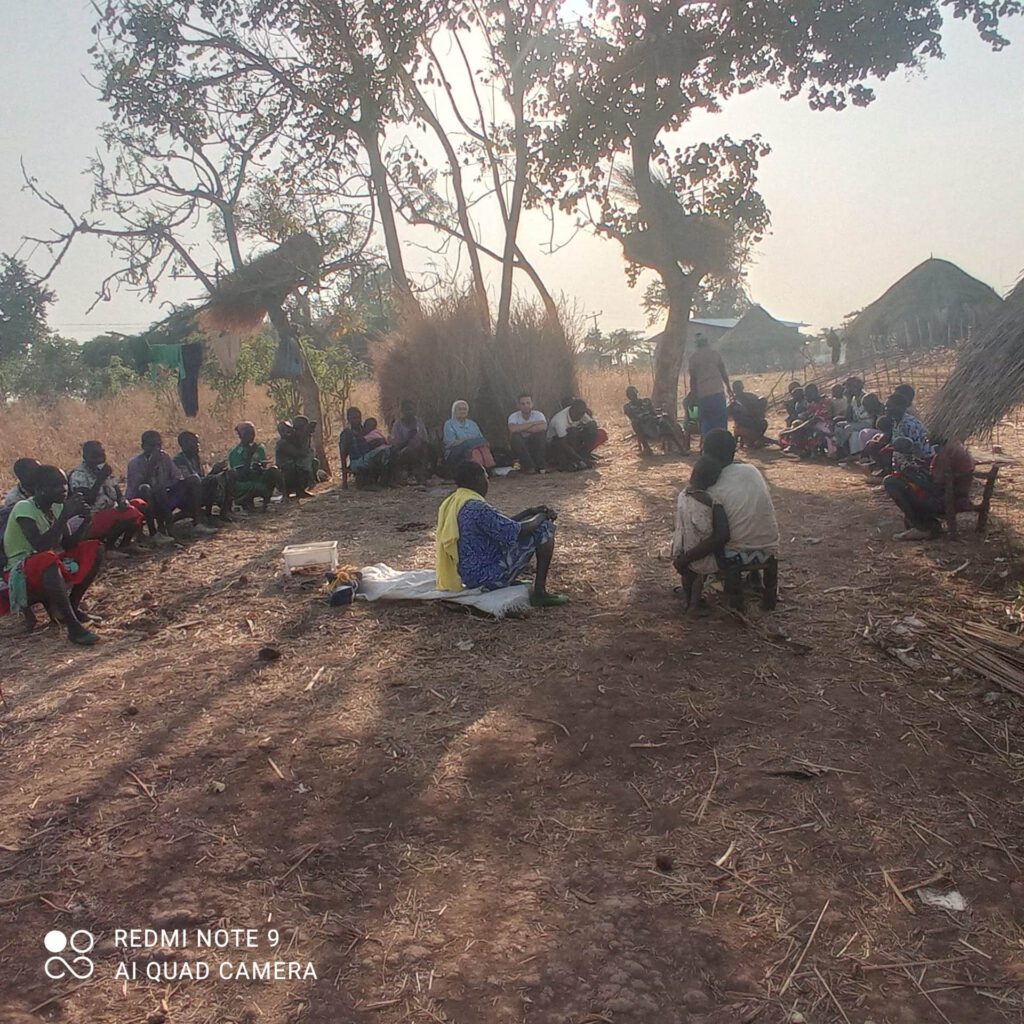
Vicenta Llorca, Comboni Missionary Sister and Pedro Nascimento, Comboni Lay Missionary.
(Third part of the testimony that we send you in three different moments)
The realization of a home a little more dignified
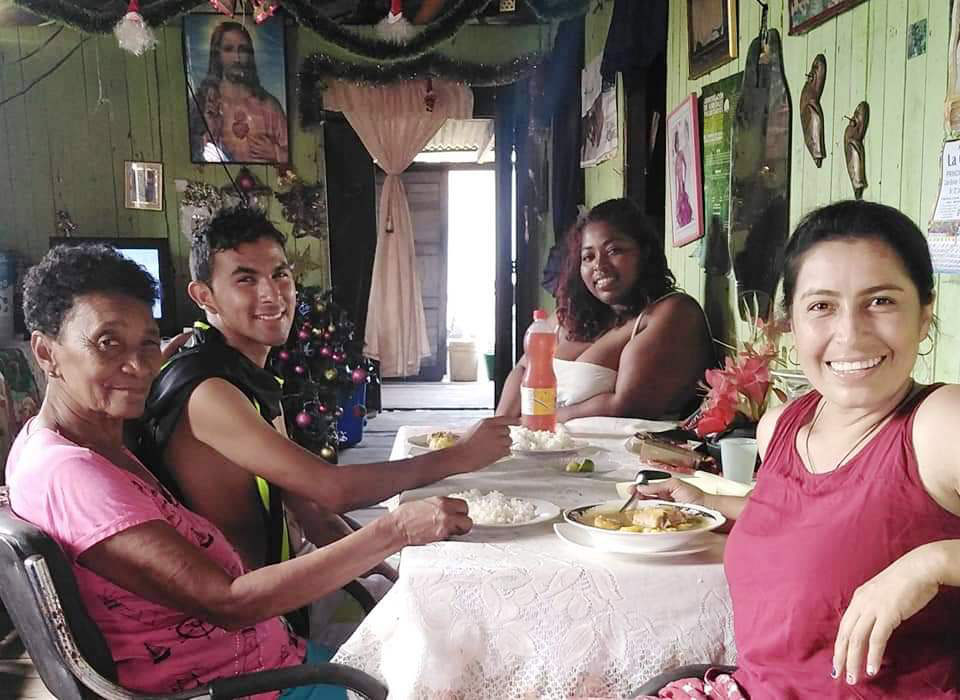
Among the children who started the school support were two little brothers Dibisay and Javier, they lived with their mother in a house that was on the other side of a sewage pipe and was in precarious conditions; a house made of reused zinc, a leaking roof, a dirt floor, a toilet and a zinc tile that served as a bathroom, a baby bathtub that served as a sink and dishwasher, a kitchen in a ravine and a wooden bridge that was about to fall down.
The first time I went to this house I was very sentimental for the conditions in which the children lived, their mother, a housewife, and their father, a master builder who works in Ibagué. One day I talked to Vane and told her about the situation, then we decided to make a video of the house and upload it on social networks so that our family, friends or friends of friends would join the cause of giving these children a more dignified home.
At first we did not imagine the impact the video was going to have and we thought we were going to collect money to make the bathroom, or maybe to change the roof, or to buy a laundry room… But I have always said that my God manifests his love when you do things that do not hurt anyone. In this way we gathered almost 7 million and together with some people who knew about construction in the neighborhood during the whole month of July we were working on the project that we called “Dibi’s house”, we were able to raise foundations, build the entire front facade of the house, change a roof, make a kitchen, make a bathroom, make two rooms (one in material and the other in Zinc), change the bridge to enter the house and the installation of pipes.
This house allowed us to learn the names of the construction materials, to learn how to make cement mixes, to cut wood, to lay the boards of the bridge, to check the quality of the material, to deal with the construction masters. Another work was finished with all the love, with a lot of learning and with a house in better conditions for the children.
Our Neighborhood Enterprise
In the month of September, Father Franco was informed that the Comboni Missionaries were going to send financial aid to families in the neighborhood that were affected by the COVID-19. In a meeting with the mission team, we wanted to convert this money into something sustainable and not something for charity. So we made a call for some people we knew who had no work and we started meeting groups where we shared cooking skills, initially there were 15 people, in each Saturday meeting there were less and less people left. When there was a group of 6 people left (Darilys, Lucero, Mrs. María, Don Cicerón, Don José María and Mrs. Claudia), after analyzing the products made and the demand in the neighborhood, it was decided that from the first Saturday of October we would start selling chicken empanadas, that day 45 empanadas were made and every Saturday we increased the production reaching on November 14 to sell 90 empanadas, in addition to the opening of a point of sale that was entrusted to God. This microenterprise has allowed us to intertwine friendships, trust, laughter and teamwork, in the pursuit of an enterprise with people who want to get ahead.
Gratitude for the Mission
I end this report of my year’s mission by thanking God for all the little people who have supported me in the distance; from Luz Dary for her economic contribution for the Christmas sharing of the children of Bajito de Vaqueria, for the chocolate with bread from the neighbors of the prayer of the block and the Dibi Project, to Diego Montilla and my cousin Edwin Vargas in the first edition of the video that was of great help in the collection of funds for the children’s house and in the edition of the second video of the finished house of the children, to my family for their support, love, understanding and for giving me money for my expenses, to my spiritual family and to my team of Comboni Lay Missionaries of Colombia for giving me money for my rent, food or my cell phone plan. Thank you from the bottom of my heart because without you it would not have been possible to support me emotionally and economically during this year. Thanks to my Marisol and my Vane for being partners in every idea, every walk, every school reinforcement, God rewarded me with their presence. A mission loaded with 90% of laughter, projects, dreams, love and blessings, 5% of tears before those people who are not so good and treated me badly and 5% of fear before the gunshots that were heard blocks away from the house.
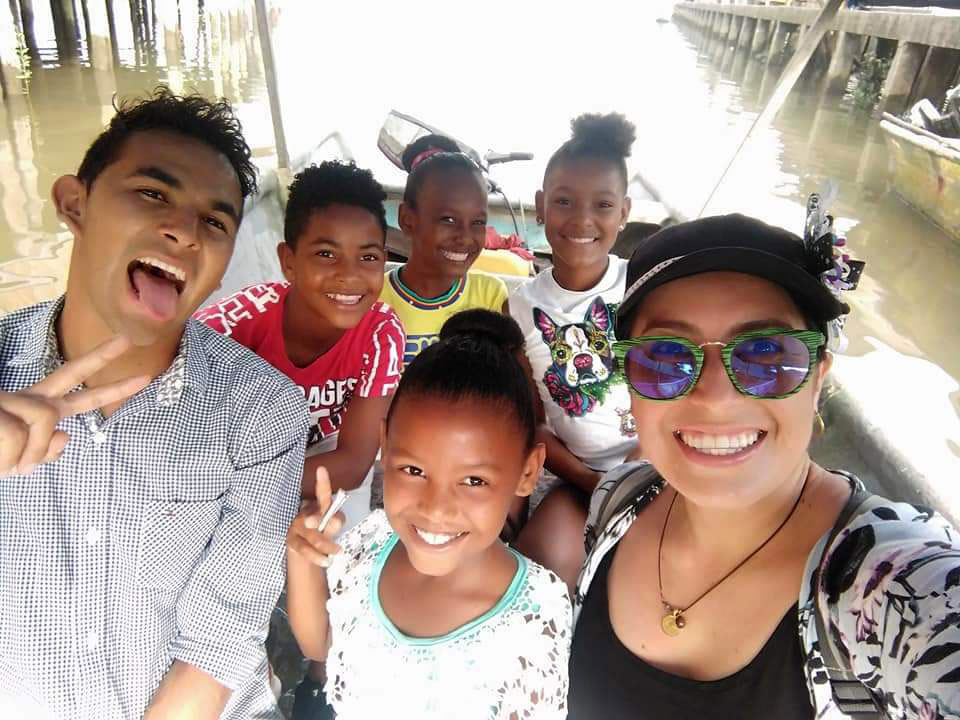
Alexandra Garcia, CLM Group Colombia
(Second part of the testimony that we send you in three different moments)
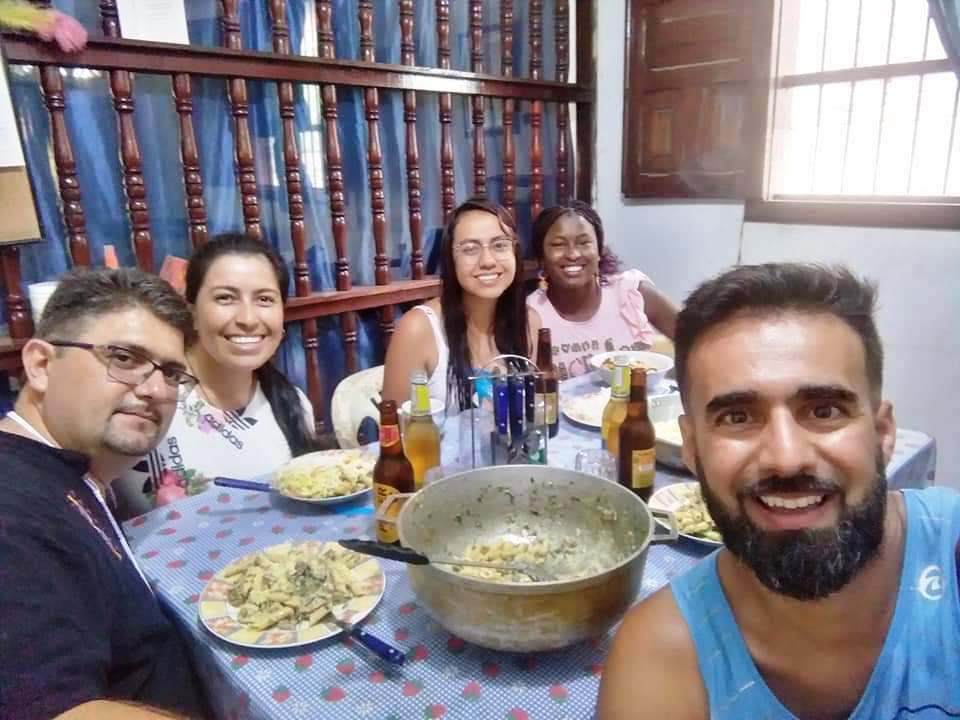
Choir and first communion catechesis:
We started together with Bro. Pontien a choir, and in turn I also committed myself to be a catechist for a group of 17 children who wanted to receive their first communion sacrament, but the momentum lasted two weekends because our country was quarantined by the COVID-19, a little insecure and assuming a reality that we thought was going to be temporary became 7 months where group meetings were allowed with a limited number of people and where holding something virtual was not a possibility because of the conditions in which a significant group of families live in the sector.
Prayer in the Cuadra
In the first weeks of the quarantine, the mission team came up with the idea of organizing some activity that would allow us to be united with the neighbors and strengthen the spiritual area, and we called this new idea the “Prayer on the block”, we called the neighbors and Mr. Robinson, who belonged to a different religion along with his family.
One Thursday in March we began to call neighbors to come out of their homes and we, with Vane, animated the songs with the cununo and the Bombo (a learning process). Each week two neighbors were in charge of the Bible reading and its reflection. In addition, a basket was placed in the center of the block where each neighbor contributed with something from the market to help one of the families that participated in the prayer. This activity generated excitement and gave us peace because we trusted that God was going to protect us from COVID-19.
We spent three months meeting from the doors of our homes so that once a week in the afternoon we would share the gospel and some of the food that arrived in our neighborhood. In this way we got to know our neighbors Karen, Luna, Laura, Yolanda, Don Jose and his family, Don Esau (who lent the extensions and the microphone), Alexandra and her little Juan (who lent the sound), Mrs. Sandra (who allowed us to connect the sound in her house), Mrs. Maria, etc.
Markets Full of Solidarity
In mid-April we received a financial donation to give markets to 35 families affected by COVID-19, AFRO families were selected from the neighborhood, who were nominated by the Afro group led by Father Franco for more than 4 years. This market contained a prayer inside for the families to thank God for the people who had contributed money inside and outside the country for the purchase of these markets. This activity allowed us to meet more families living inside and outside our neighborhood.
Termination of my Contract
My contract was for three months, and when the contract ended there was no possibility that it would be renewed, the situation scares me but thank God those months were paid and with that money I could support myself for two more months. Then came my birthday and I received money from my blood family and my spiritual family (community Señor de los Milagros de Tauramena/ Casanare). In this way I was able to sustain myself until July.
Donation of a printer and school accompaniment.
At the end of April, a relative of Vanesa donated us the money to buy a printer and in this way help some families in the neighborhood with the online education of their children, we contacted teachers of second and third grade of the Buenos Aires Educational Institution, and with a group of five children (Dibisay, Juan Sebastian, Jhovanni, Laura and Javier) started in the apartment a school accompaniment, these children were two of second grade and three of third grade. They came to the apartment in the mornings and afternoons we proposed to work in order to be leveled, by the end of June the goal was achieved and we had a picnic as a prize.
The requirements that these five children met were as follows:
In addition to this, thanks to the printer, 10 families would pick up printed guides after five in the afternoon, so that the children could work from home. One child came once a week for me to take the evidence of the solved activities and send it to the grade director.
In July, two new girls (Jondarlys and Sharick) joined the school reinforcement program, they were also behind and were in third grade, so I set up a schedule in the morning from 8:30 am to 12:00 pm and in the afternoon I received only three children, because when Laura and Juan Sebastian were leveled, they began to work from home on the two daily guides sent by the teachers. In that month of July, we started a construction of a house and Marisol (Laywoman) supported the school reinforcement from her house. In August I resumed the school support with three new children in the morning schedule (Paula, Shari and Adrian) two of second grade and one of third grade, and in the afternoon we attended all the children of third grade who were up to date with homework, by then there were 5 children, from this month some parents according to their needs made me a contribution of 15 or 20 thousand pesos per week and thus helped me with my expenses.
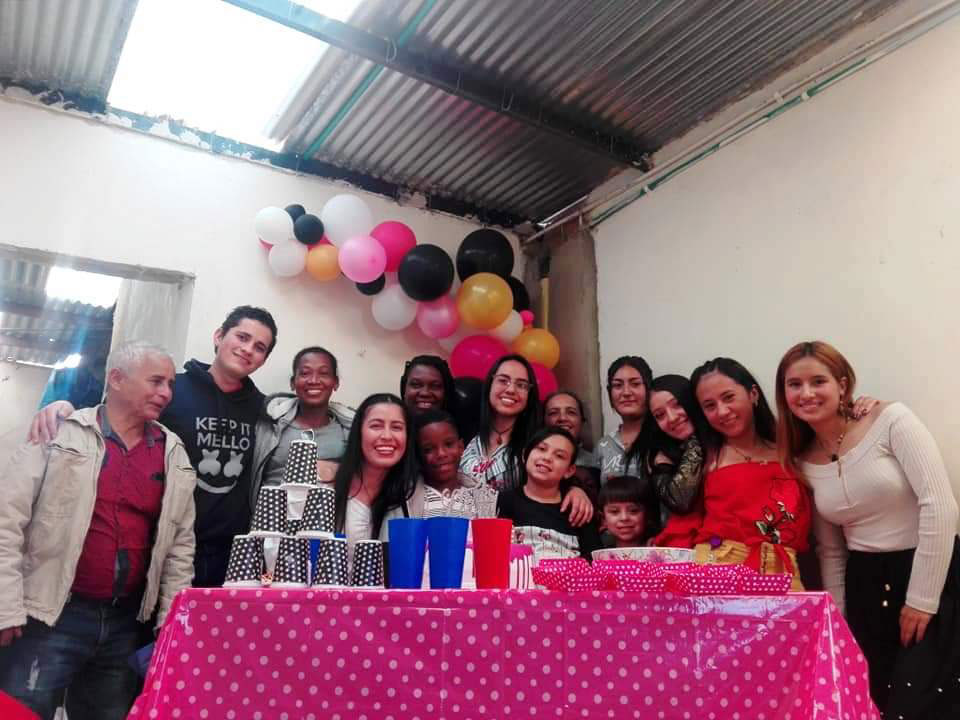
At the beginning of September, the group expanded, now I had 6 children in the morning (Shari, Jordanys, Gabriela, Nicol, Paula), who belonged to different grades; first, second, fourth, fifth and sixth. Then I had to look for someone to support me and God sent Natalia, a girl from the neighborhood who was 20 years old and had already worked with children. The afternoon group expanded and now there were 6 children (Jhovanni, Adrian, Jondarlys, Luis Ferney, Javier and Victoria). The processes here became more challenging because Jordanys and Shari did not know how to read and we proposed to start the process of teaching reading and writing.
By the end of October, Elvin, a third grader from another institution, joined the program and the challenge was to help him save the year, so by the second week of November this process was completed with two children in the morning and four in the afternoon. Only Jhovanni, 9 years old, was there from the beginning to the end of this experience.
The school support became a process where some children learned to read, write, do reading comprehension, color and work judiciously to meet the daily goals. They were months of laughter, tension, frustration tolerance, field trips (every month we did an integration excursion with the children who were there), a process where you help children not to lose a school year, to do good quality work, they were months of love and details. These children gave meaning to my mission because their witticisms, their personalities, gave meaning to my weeks. God bless each one of them and their families, and keep them safe from harm.
Alexandra Garcia, CLM Group of Colombia